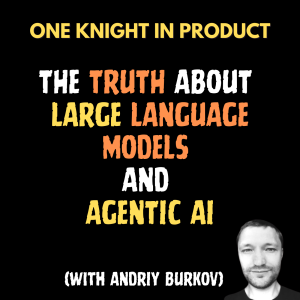
- Podcast Features
-
Monetization
-
Ads Marketplace
Join Ads Marketplace to earn through podcast sponsorships.
-
PodAds
Manage your ads with dynamic ad insertion capability.
-
Apple Podcasts Subscriptions Integration
Monetize with Apple Podcasts Subscriptions via Podbean.
-
Live Streaming
Earn rewards and recurring income from Fan Club membership.
-
Ads Marketplace
- Podbean App
-
Help and Support
-
Help Center
Get the answers and support you need.
-
Podbean Academy
Resources and guides to launch, grow, and monetize podcast.
-
Podbean Blog
Stay updated with the latest podcasting tips and trends.
-
What’s New
Check out our newest and recently released features!
-
Podcasting Smarter
Podcast interviews, best practices, and helpful tips.
-
Help Center
-
Popular Topics
-
How to Start a Podcast
The step-by-step guide to start your own podcast.
-
How to Start a Live Podcast
Create the best live podcast and engage your audience.
-
How to Monetize a Podcast
Tips on making the decision to monetize your podcast.
-
How to Promote Your Podcast
The best ways to get more eyes and ears on your podcast.
-
Podcast Advertising 101
Everything you need to know about podcast advertising.
-
Mobile Podcast Recording Guide
The ultimate guide to recording a podcast on your phone.
-
How to Use Group Recording
Steps to set up and use group recording in the Podbean app.
-
How to Start a Podcast
-
Podcasting
- Podcast Features
-
Monetization
-
Ads Marketplace
Join Ads Marketplace to earn through podcast sponsorships.
-
PodAds
Manage your ads with dynamic ad insertion capability.
-
Apple Podcasts Subscriptions Integration
Monetize with Apple Podcasts Subscriptions via Podbean.
-
Live Streaming
Earn rewards and recurring income from Fan Club membership.
-
Ads Marketplace
- Podbean App
- Advertisers
- Enterprise
- Pricing
-
Resources
-
Help and Support
-
Help Center
Get the answers and support you need.
-
Podbean Academy
Resources and guides to launch, grow, and monetize podcast.
-
Podbean Blog
Stay updated with the latest podcasting tips and trends.
-
What’s New
Check out our newest and recently released features!
-
Podcasting Smarter
Podcast interviews, best practices, and helpful tips.
-
Help Center
-
Popular Topics
-
How to Start a Podcast
The step-by-step guide to start your own podcast.
-
How to Start a Live Podcast
Create the best live podcast and engage your audience.
-
How to Monetize a Podcast
Tips on making the decision to monetize your podcast.
-
How to Promote Your Podcast
The best ways to get more eyes and ears on your podcast.
-
Podcast Advertising 101
Everything you need to know about podcast advertising.
-
Mobile Podcast Recording Guide
The ultimate guide to recording a podcast on your phone.
-
How to Use Group Recording
Steps to set up and use group recording in the Podbean app.
-
How to Start a Podcast
-
Help and Support
- Discover

The TRUTH About Large Language Models and Agentic AI (with Andriy Burkov, Author "The Hundred-Page Language Models Book")
Andriy Burkov is a renowned machine learning expert and leader. He's also the author of (so far) three books on machine learning, including the recently-released "The Hundred-Page Language Models Book", which takes curious people from the very basics of language models all the way up to building their own LLM. Andriy is also a formidable online presence and is never afraid to call BS on over-the-top claims about AI capabilities via his punchy social media posts.
Episode highlights: 1. Large Language Models are neither magic nor consciousLLMs boil down to relatively simple mathematics at an unfathomably large scale. Humans are terrible at visualising big numbers and cannot comprehend the size of the dataset or the number of GPUs that have been used to create the models. You can train the same LLM on a handful of records and get garbage results, or throw millions of dollars at it and get good results, but the fundamentals are identical, and there's no consciousness hiding in between the equations. We see good-looking output, and we think it's talking to us. It isn't.
2. As soon as we saw it was possible to do mathematics on words, LLMs were inevitableThere were language models before LLMs, but the invention of the transformer architecture truly accelerated everything. That said, the fundamentals trace further back to "simpler" algorithms, such as word2vec, which proved that it is possible to encode language information in a numeric format, which meant that the vast majority of linguistic information could be represented by embeddings, which enabled people to run equations on language. After that, it was just a matter of time before they got scaled out.
3. LLMs look intelligent because people generally ask about things they already know aboutThe best way to be disappointed by an LLM's results is to ask detailed questions about something you know deeply. It's quite likely that it'll give good results to start with, because most people's knowledge is so unoriginal that, somewhere in the LLM's training data, there are documents that talk about the thing you asked about. But, it will degrade over time and confidently keep writing even when it doesn't know the answer. These are not easily solvable problems and are, in fact, fundamental parts of the design of an LLM.
4. Agentic AI relies on unreliable actors with no true sense of agencyThe concept of agents is not new, and people have been talking about them for years. The key aspect of AI agents is that they need self-motivation and goals of their own, rather than being told to have goals and then simulating the desire to achieve them. That's not to say that some agents are not useful in their own right, but the goal of fully autonomous, agentic systems is a long way off, and may not even be solvable.
5. LLMs represent the most incredible technical advance since the personal computer, but people should quit it with their most egregious claimsLLMs are an incredible tool and can open up whole new worlds for people who are able to get the best out of them. There are limits to their utility, and some of their shortcomings are likely unsolvable, but we should not minimise their impact. However, there are unethical people out there making completely unsubstantiated claims based on zero evidence and a fundamental misunderstanding of how these models work. These people are scaring people and encouraging terrible decision-making from the gullible. We need to see through the hype.
Buy "The Hundred-Page Language Model Book""Large language models (LLMs) have fundamentally transformed how machines process and generate information. They are reshaping white-collar jobs at a pace comparable only to the revolutionary impact of personal computers. Understanding the mathematical foundations and inner workings of language models has become crucial for maintaining relevance and competitiveness in an increasingly automated workforce. This book guides you through the evolution of language models, starting from machine learning fundamentals. Rather than presenting transformers right away, which can feel overwhelming, we build understanding of language models step by step—from simple count-based methods through recurrent neural networks to modern architectures. Each concept is grounded in clear mathematical foundations and illustrated with working Python code."
Check it out on the book's website: https://thelmbook.com/.
You can also check out Machine Learning Engineering: https://www.mlebook.com and The Hundred-Page Machine Learning Book: https://www.themlbook.com/.
Follow AndriyYou can catch up with Andriy here:
- LinkedIn: https://www.linkedin.com/in/andriyburkov/
- Twitter/"X": https://twitter.com/burkov
- True Positive Newsletter: https://aiweekly.substack.com/
More Episodes
Create your
podcast in
minutes
- Full-featured podcast site
- Unlimited storage and bandwidth
- Comprehensive podcast stats
- Distribute to Apple Podcasts, Spotify, and more
- Make money with your podcast
It is Free
- Privacy Policy
- Cookie Policy
- Terms of Use
- Consent Preferences
- Copyright © 2015-2025 Podbean.com





